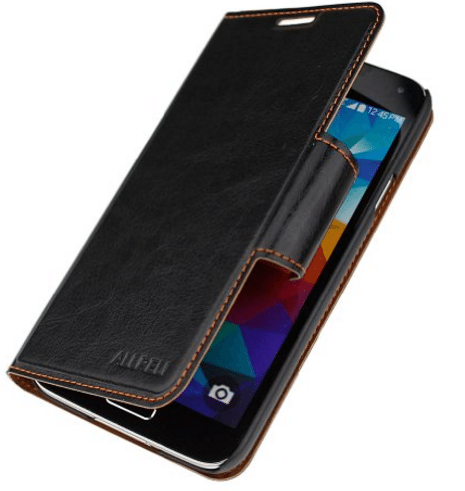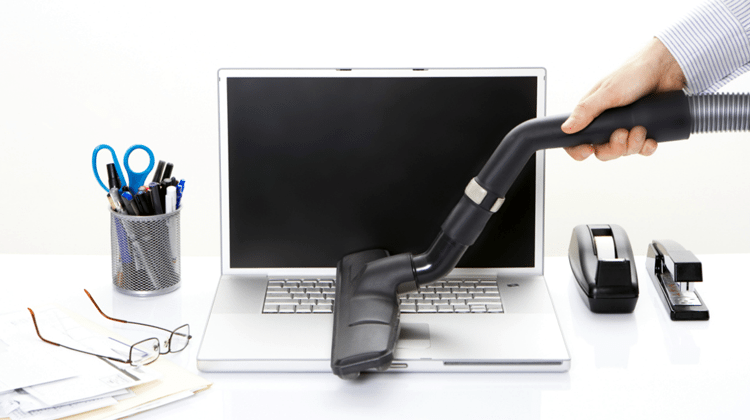Electronic devices are prone to damage, especially if we don't handle them as we should. Whether it is our PC, our smartphone/tablet, or maybe a game console, there are some general guidelines we can follow for preventive maintenance. That way, our devices will stay functional for as long as possible, and we will have a better chance to replace them when we want, not because we were forced to.
Unblock any international website, browse anonymously, and download movies and Mp3 with complete safety with CyberGhost, just for $2.75 per month:
What does preventive maintenance mean?
Companies use the term "preventive maintenance" (or less often "preventative maintenance") to refer to routine maintenance, which helps to keep their equipment up and running.
In other words, we could say that it is a plan to take care of any machine before an actual problem arises.

This plan may include things like cleaning, hardware inspection, replacing broken parts, and so on.

Of course, when it comes to large enterprises, they tend to keep accurate records of past inspections for future reference. They also use preventive maintenance software for that purpose.
We, mere mortals, don't need any special software or service reports for our hardware's preventive maintenance routine. We just need to follow a simple schedule, based on the tips below.
Of course, comparing to a company's complicated plan, our preventive maintenance routine may sound like a joke. The term is more appealing though, instead of a simple "I will clean my laptop today."
General tips for preventive maintenance
Heat is the worst enemy of electronics. And what promotes overheating? Dust, dirt, and ovens. Oh, and Samsung Galaxy Note 7.
The two last ones are irrelevant to preventive maintenance unless you tried to charge your smartphone using the microwave oven, or you bought the Note 7. For those wondering, the result would be the same.

Anyway, if you can type your name on dusted devices, it is probably time to do some cleaning.

It is important to keep the dust away from electronics if we want them to last longer. For some devices, it is as easy as wiping the dirt with a cloth, while for others it requires more effort, such as with keyboards.
No matter the case, dust is the enemy, and we'd better hunt it down every few months, at a minimum.

Another common factor of device malfunction is electricity. A power surge or a blackout can potentially fry our computer hardware, as well as any other device that is plugged in at that time.
Thus, it is wise to use surge protectors on our sockets, along with a good UPS for desktop computers.
Last but not least, our behaviors can sometimes be harmful to electronic devices.

No, we are not talking about anger management issues. It is the food we should worry about, and especially liquids.
It is hard - or in most cases impossible - to repair an electronic device if we spill coffee or any other liquid on it.

Unless we are talking about waterproof devices, we shouldn't drink or eat near our valuable equipment.
Computers
Whether we have a laptop or a desktop, it's necessary to follow a preventive maintenance schedule; not only it will extend their lifespan, but it will keep the device efficient and productive.
We already dedicated an article on computer maintenance, so there isn't much to say here.
To sum it up and keep it simple:
- Clean your desktop's case from the inside at least once a year, depending on the amount of dust in your house. Ideally, you want to put the case on a desk to minimize dirt exposure, and not on the floor.

The same goes for laptops; we need to open them up and clean the dust from the fans once in a year or two. If you don't feel comfortable disassembling your laptop, consider taking it to a computer repair technician. Otherwise, you risk damaging your device.
- Always keep laptops on a flat surface for proper ventilation. You are not supposed to put them on "top" of your "lap"; the name "lap-top" is entirely misleading.

This is probably the most crucial tip for preventive maintenance on notebooks. Better yet, use a proper laptop stand with additional fans.
- Carry your laptop only in a protective bag. Furthermore, you should always power it down when moving. It is not safe to carry it around when it's on, especially if it has an HDD drive.
- Take good care of your battery to extend its lifespan. You can follow the tips below.
How to Get a Longer Battery Life For Laptops, Smartphones, or Tablets
- On the software side, make sure to install an antivirus along with a firewall, to protect your data from online threats.
Scan your computer for malware manually at least once a week. Several anti-malware tools can help us with that, although the free versions rarely have an automatic schedule feature.

- Cleanup your disk and regularly defragment it if you have an HDD. For SSDs, make sure the TRIM feature is enabled.
- Update your software, but back up your current setup before any changes.
Peripherals
Once a week, blow the dust out of your keyboard. You can use a blower or q-tips for better cleansing. For more information on how to clean a keyboard, follow the instructions in this guide.
Dust will settle on any uncovered surface, and that includes other peripherals, such as the mouse, our speakers, etc. Make sure to remove the dust on those too with a proper cloth.
Tablets and smartphones
When it comes to portable devices, dust stops being a problem. We may leave fingerprints on their screens when we use them, but that won't affect their lifespan as far as we can tell; only our hygiene.
If we want to clean the display - and we should from times to times, we can use a microfiber cloth or pre-moistened screen-cleaning wipes that are available on the market.

A screen protector, however, will keep your device safe from scratches and thus it is critical. If it is a matte membrane, it will also prevent fingerprints at some level.
Since we carry these devices with us all the time - especially our smartphones, a solid case is also an excellent idea.

The battery tips we mentioned above apply here as well.
Apart from those, that's pretty much all we can do for preventive maintenance on portable devices.
Monitors and TVs
It is important to clean a computer's screen or any display we have sitting around (e.g., TV) once a week as well, or whenever it gets dirty. For this task, we can use a microfiber cloth like this.

It might be safe to apply some isopropyl alcohol on the cloth for some LCDs; check your manual to be on the safe side, and don't try any liquid solution unless it is mentioned in the manufacturer's instructions.
Moreover, we should always close the TV and our monitors when we are not using them. Most modern displays include a standby mode. We want to keep this feature enabled if we want them to last longer.
What is your preventive maintenance routine?
Do you follow any of the above tips on a regular basis? Is there anything else you are doing to keep your electronics up and running?
Leave a comment below.
Support PCsteps
Do you want to support PCsteps, so we can post high quality articles throughout the week?
You can like our Facebook page, share this post with your friends, and select our affiliate links for your purchases on Amazon.com or Newegg.
If you prefer your purchases from China, we are affiliated with the largest international e-shops:





Leave a Reply